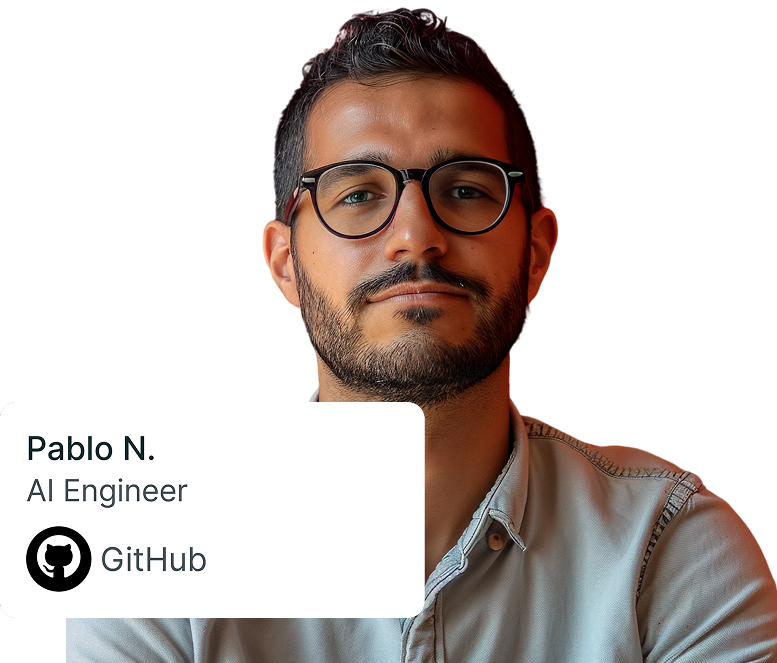The rapidly evolving fintech industry, which refers to technologies and applications created to deliver financial services, is quickly replacing many of the financial services offered by traditional financial institutions. This includes financial technology applications like online payment and money transfer solutions, e-wallets, online trading platforms, and cryptocurrency platforms.
As the fintech industry quickly expands, the importance of hiring the right engineering talent can't be overstated. Knowing what you're looking for in an engineer and having effective interviewing and onboarding processes are necessary for any fintech company looking to build and maintain its tech infrastructure.
In this article, we'll explore some of the foundational principles you should keep in mind when interviewing engineering candidates for the fintech industry. We'll also share useful tips to consider when designing the interview process.
Designing an interview process for the fintech industry
Designing an interview process for engineering talent can be a complicated task since it requires the assessment of a wide range of technical and nontechnical skills.
The first thing you need to consider is what type of engineering specialization is needed. Your development road map and the size and structure of the technical department you're hiring for can help you hone in on a specific specialization that will add value to your existing team.
As you may know, there's a broad spectrum of engineering specializations within the fintech industry. The following are the engineering specializations that are in high demand and needed for every fintech organization to build, maintain, and scale their systems:
Software engineer
Software engineers are experienced and highly qualified professionals in the software industry who are responsible for applying engineering principles in the software development process. They're needed for planning, developing, and maintaining large and complex systems.
Depending on the experience, a software engineer can qualify for any of the engineering roles mentioned in this section.
Software architect
The main responsibility of a software architect is to make high-level decisions about software design and architecture after analyzing and specifying technical and nontechnical requirements, in addition to being involved in software development, testing, and deployment operations.
DevOps engineer
DevOps engineers are technical professionals experienced in software development and IT operations, and they have a deep understanding of the software development lifecycle. DevOps engineers work as a link between the stakeholders and the developers and are involved in project management and decision-making. They're also responsible for setting up and optimizing the development, testing, and release processes.
Software developer
Software developers are the individuals who actually write the code. The skills required for this role are mainly technical, including strong problem-solving and programming skills.
After deciding what engineering specialization is needed, you'll be able to determine what skills are required for the position and what skills would be beneficial. Then you can decide what type of interviews and skill assessment tests you need to include in the process.
However, you should be careful at this stage since having multiple interviews and long tests can be exhausting for both the hiring staff and the interviewees. In contrast, conducting a single interview for a position that requires a wide range of skills is not enough.
To achieve the desired balance, you can conduct a technical oral interview followed by a coding test. The oral interview tests the candidate's technical knowledge in regard to fintech, and the coding test can help measure the candidate's hands-on technical skills. In addition, you should schedule another interview with a nontechnical industry specialist to measure the interviewee's knowledge about the industry, its regulations, and their nontechnical skills, including communication.
Skills to look for when hiring engineers in the fintech industry
A range of technical and nontechnical skills are required for an engineer to be successful in any technical industry but specifically in fintech. In the following sections, you'll learn about some of the must-have skills to identify when hiring engineering talent in the fintech industry, as well as specific examples of how you can assess these skills during the interview process.
Programming and problem-solving skills
A fintech engineer is expected to have knowledge and experience in multiple programming languages. Add to that specific programming skills, such as problem-solving, algorithms, design patterns, regular expressions, coding best practices, and security practices, that are critical when it comes to hiring in the fintech industry. For this reason, programming skills should be assessed through a coding interview.
In this interview, it's important to assess a candidate's problem-solving skills along with their programming skills by giving the individual multiple technical problems to solve. Each of these problems should be focused on a certain skill, and the complexity of the problems included in every coding interview should vary based on the seniority level of the position.
Software architecture knowledge
Fintech systems are complex systems that require high consideration for security, availability, and scalability. To work with these types of systems, strong knowledge of software architecture, specifically designing and maintaining distributed systems and micro-service architecture's —based systems, is needed.
Security expertise
The importance of security cannot be overstated in the fintech industry. A security breach or a successful hacking attempt can be a devastating event for you and your customers that can significantly damage your organization's credibility.
It's important to test the knowledge of common software security practices, how to implement them, and how to deal with common vulnerabilities and attacks, like identity theft, DDoS attacks, phishing attacks, and third-party integration security risks.
Regulatory awareness
Fintech is a regulated industry, and the regulations governing how fintech organizations operate change over time. In addition, some regulations are considered industry standards that every engineer in the fintech industry must know about, including payment card industry (PCI) compliance, Know Your Customer (KYC) standards, and General Data Protection Regulation (GDPR).
Questions about the aforementioned regulations, in addition to general questions about the current government and banking regulations regarding fintech, should be included in an oral interview. In addition, you should inquire about the types of things an engineer should take into account to ensure that these regulations are met on a consistent basis.
Technical agility
Fintech is highly reliant on software industry updates and innovations. This requires technical agility to cope with rapid changes, like new technology adoptions, demands for scalability, and continuous integrations with third-party APIs.
An ideal candidate should be willing to adapt, learn new skills, and keep up with new technology demands. You should inquire about what skills the candidate gained during the last year and what skills and technical concepts they are planning to gain and improve upon in the future. These types of questions can reveal a lot about a candidate's technical agility.
Project management skills
Unless you're hiring a junior software developer, there are certain must-have project management skills that are necessary for most positions. For instance, your interviewees should know about Agile practices, be able to organize tasks, set priorities, and have familiarity with commonly used project management software, such as Jira, Basecamp, and ClickUp.
Industry-specific knowledge
Aside from the technical knowledge, candidates should have a general understanding of the industry and its common products and practices, such as payment methods, payment verification processes, and industries to cater to. This type of knowledge helps speed up the onboarding process and eases communication between technical professionals and business personnel in your organization.
Non-technical problem-solving skills
Oftentimes, nontechnical problem-solving skills are as crucial as technical problem-solving skills when hiring your ideal candidate. Nontechnical problem-solving skills help measure the engineer's ability to respond to situations in which the main problem isn't mainly technical.
You can verbally test for nontechnical problem-solving ability during the interview by asking questions about some of the common situations that an engineer will face within your organization to assess the interviewee's analytical skills, effective communication, and decision-making skills. For instance, it's important to consider questions that will target how an engineer will respond during the occurrence of events like a sudden change of regulation that requires an urgent software update or how they approach a conversation with a subject matter expert in the financial industry who has little or no technical background.
Communication and remote working skills
Software bugs, security vulnerabilities, and delayed releases are all issues that often occur because of miscommunication. Verbally testing the applicant's knowledge of the software and tools used by your company for communication and their knowledge of internal communication protocols is crucial for understanding their communication style.
Moreover, availability and responsiveness are usually only considered when hiring for remote jobs. However, even if the job position isn't fully remote, engineers usually have to complete certain tasks remotely on occasion. As a result, you need to make it clear if there are times when you might need an engineer to respond during unforeseen circumstances, such as an unplanned downtime or an overlooked critical bug on a released software version.
Interviewing process best practices for hiring fintech talent
After exploring the most crucial skills for engineering talent in the fintech industry, here are some of the most important practices to follow while conducting an interview:
Streamline test-related activities
Evaluating technical skills is hard to accomplish in a single test. For this reason, it's recommended to offer multiple coding tests that each target a specific skill set. For instance, you can design small, consecutive coding challenges that measure an engineer's general programming skills, problem-solving skills, best practices for coding, encryption methods, and security awareness.
To ensure you won't exhaust a candidate by forcing them to spend an excessive amount of time being tested, it's important not to include challenges that require an extensive amount of time, and it's recommended that you set time limits for each test.
Testing for programming skills can be done on the company's internal platform or technical interview testing platforms, like Codility and CodeSignal. In any test, you should ensure that the coding test data is secure and only accessible to the personnel involved in the hiring process. Make sure you don't accidentally share any confidential data, like a piece of your software source code.
Keep communication simple and clear
It's best to keep your communication as straightforward as possible and avoid the use of ambiguous words, passive voice, and terms that aren't industry-specific. It's also best to avoid referencing details and information that are not specific to the job position you're hiring for.
By keeping the communication simple and clear, you'll make the interviewee comfortable to share knowledge and information about their skills.
Be aware of information confidentiality
Information confidentiality isn't limited to technical data. As a result, you should be careful not to accidentally share any confidential information about the company. It's always preferred to give the candidate a chance to ask questions about your organization to measure their level of interest. However, you should be aware that some of the answers to such questions might reveal details about the company's internal software or future products and features that are yet to be released.
Last thoughts
Designing an interview process that can help you filter and find the right engineering talent is a tough and time-consuming job. In this article, we unpacked the different engineering specializations that are in high demand in the fintech industry, the technical and nontechnical skills to look for in engineering talent, and the best practices to follow during the interview process.




.png)




.avif)



.png)









.jpg)
